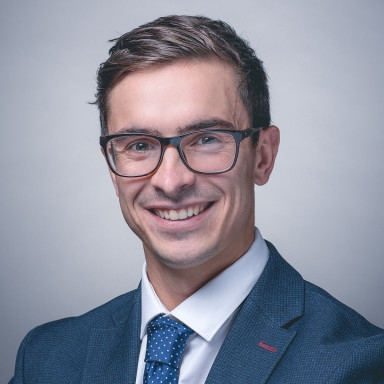Jacob De Tusch-Lec is a contrarian investor and has managed the fund since launch in July 2010
The fund is separated into three buckets, each with its own unique income traits
Performance has struggled in recent years, but over the past 12 months, benchmark-relative returns have improved
The fund is on our Wealth Shortlist of funds chosen by our analysts for their long-term performance potential
How it fits in a portfolio
Artemis Global Income aims to deliver income and growth by investing in companies from around the world. Income is generated through a variety of sources, from the more mature steady companies to lower quality, higher yielding companies. A focus on companies perceived to be undervalued is the overriding style which means the fund could work well alongside more growth-focused funds or add diversification to a UK-centric income portfolio.
We believe this fund offers something a little different to other global income funds. De Tusch-Lec’s stayed true to his philosophy during tougher periods, but he will also be flexible and tweak how he invests depending on market conditions. However, whilst the fund has tended to provide a higher level of income, it has also been more volatile than most of its peers in the IA Global Equity Income sector.
Manager
Jacob De Tusch-Lec has managed the fund since launch in July 2010. After joining Artemis in 2005, he spent several years managing UK equities prior to his transition into the global universe. He started his career at BankInvest before moving to Merrill Lynch where he served as vice-president on a pan-European equity strategy.
He’s supported by co-manager James Davidson, who joined in 2018 from JP Morgan and has experience managing both global and US-focused portfolios. Davidson has over two decades of investment experience and previously worked with De Tusch-Lec during his time at Merrill Lynch.
Both managers also run the equity portion of the Artemis Monthly Distribution fund but given the overlap in style and approach, we believe they can manage this workload comfortably. We like the challenge and support gained by working as a duo and we think their interaction with other teams enhances their analysis.
Process
The managers conduct detailed company analysis to identify those with a healthy amount of cash to either pay out dividends or buy back shares. As a natural contrarian, De Tusch-Lec is not afraid to invest in out-of-favour companies with recovery potential alongside higher-risk smaller companies and emerging markets, all of which increases the level of risk being taken in the fund.
The fund is divided into three buckets. ‘Core income’ forms the bedrock and has historically accounted for around 40% of the fund. These companies tend to be more mature, less sensitive to the wider economy and can provide a high and steady dividend yield. ‘Dividend growth’ is the second bucket and focuses on companies with the ability to provide an attractive and growing dividend, but are likely to be more exposed to the health of the broader economy (more cyclical). Finally, ‘risk and special situations’ is the smallest of the three buckets. It’s home to higher risk, lower quality companies which have the potential to pay a much higher dividend.
In addition to their company-specific research, the managers also take a view on the direction of the global economy. This considers factors like the economic cycle, interest rates and the yield curve. The outcome influences the weighting of each bucket.
The fund invests in around 70 companies. The amount invested in the US has grown since the fund launched, and now accounts for just under half of the fund. That said, this is still lower than the broader global stock market. The managers also find plenty of opportunities within Europe. Although they don’t currently feature in the fund, the manager has the flexibility to invest in high-yield bonds and derivatives to help manage the portfolio, both of which are higher risk strategies.
De Tusch-Lec believes the global economy is slowing, and we are heading for a recession. It is just a question of the depth of the recession. As a result, he’s reduced exposure to some cyclical companies which has seen The Blackstone Group, which performed strongly in 2021, exit the fund. De Tusch-Lec thinks there’s potential for commodity prices to remain higher for longer as global demand looks set to increase over time. As a result, he sees potential for this to benefit the funds’ energy and mining investments, such as Exxon Mobil and Glencore.
Culture
De Tusch-Lec is a partner at Artemis, and Artemis is a private company. We think this structure is a good thing for investors, as both manager and firm are focused on the long term and can run funds without distractions from short-term shareholder demands. Artemis also provides an attractive environment for fund managers, allowing them the freedom to run money how they best see fit without imposing a ‘house view’ on them. It’s also a collegiate atmosphere, with managers supporting and challenging each other.
ESG Integration
Investment teams at Artemis are encouraged to think for themselves and invest according to their own style, so the quality of ESG (Environmental, Social and Governance) integration across the firm varies. That said, recent meetings with the Artemis teams that we include on the Wealth Shortlist suggest that ESG is starting to become a more important factor. Artemis has a firm-wide policy to support the aims of international conventions on cluster munitions and antipersonnel mines and therefore the firm will not knowingly invest in companies which produce these weapons.
The firm also provides ‘responsible investing stamps’ next to each of its funds, which help investors see, at a glance, which forms of responsible investment are incorporated in each fund. Artemis votes on all their holdings, unless restricted from doing so, and fund managers engage with firms to develop their understanding, raise issues with management and monitor subsequent developments.
The managers are gradually taking ESG issues into account more when analysing companies for this fund. Along with the wider team, they engage with companies on sustainability issues and vote on key issues. That said, they will sometimes still invest in companies that are not traditionally seen as scoring highly on ESG matters, as many of these tend to pay higher dividends to shareholders.
Cost
The fund is normally available for an annual ongoing charge of 0.87%. We negotiated a 0.27% saving though, so it’s available on the HL platform for 0.60%. The fund discount is achieved through a loyalty bonus, which could be subject to tax if held outside of an ISA or SIPP. The HL annual platform charge of up to 0.45% also applies.
Performance
Since the fund launched in July 2010, De Tusch-Lec has outperformed peers in the IA Global Equity Income sector. Over this period the fund returned 229.55%*, compared to 200.34% for the peer group average. There are no guarantees this will continue though, and there have been periods where the fund’s performance has varied significantly from its peers and the broader global stock market. This was the case between 2018 and 2020 when the managers’ investment style and their stock picking weighed on returns.
We would typically expect the fund to underperform peers during falling markets and outperform in rising ones. This has been the case over the past 12 months with the fund returning -3.27% vs -1.31% for the peer group. The managers have found success within sectors such as energy and consumer staples.
Glencore was one of the top performers, having been able to materially strengthen its balance sheet and return significant capital to shareholders. The mining company has benefited from an earnings tailwind given rising coal prices. Sberbank, the Russian banking and financial services company, was the biggest detractor. Its value was written down to zero for regulatory reasons in light of the Russia-Ukraine Conflict. Other notable detractors included oil business Baker Hughes. The company did not experience the positive earnings momentum that the managers were expecting and reported disappointing results. The company put this down to significant supply chain issues. The managers still believe the business is robust and think it’s attractively valued compared to its oil servicing peers.
The fund currently yields 4.29%, though yields are not a reliable indicator of future income and income isn’t guaranteed. The fund’s charges are taken from capital, which can increase income, but reduce the potential for capital growth over time. The fund and any income the fund produces can fall as well as rise in value, so investors could get back less than they invest.
Annual percentage growth
Nov 18 - Nov 19 | Nov 19 - Nov 20 | Nov 20 - Nov 21 | Nov 21 - Nov 22 | Nov 22 - Nov 23 | |
|---|---|---|---|---|---|
Artemis Global Income | 3.53% | -0.80% | 21.96% | 3.48% | 3.49% |
IA Global Equity Income | 10.49% | 3.04% | 16.31% | 3.78% | 3.71% |

